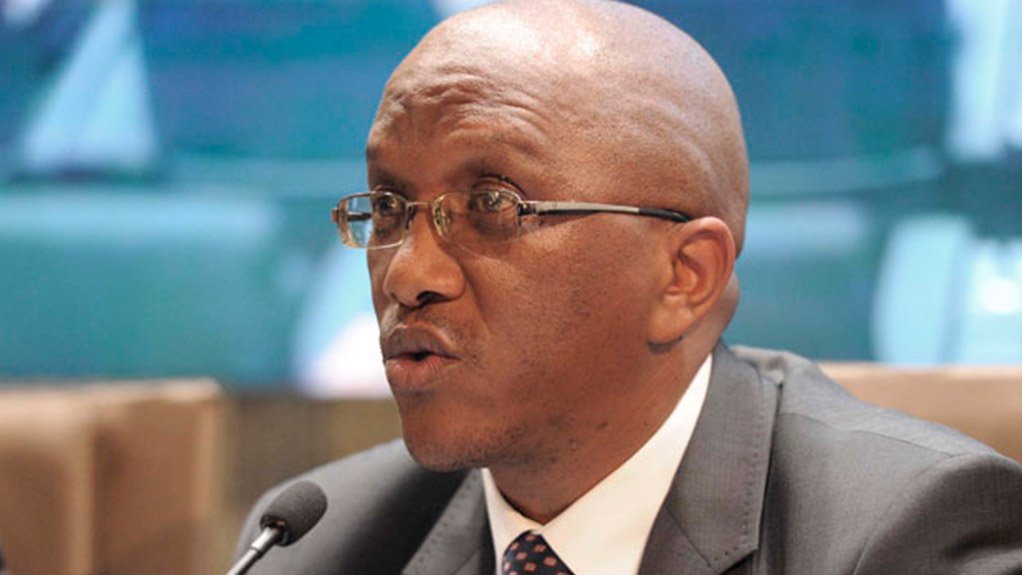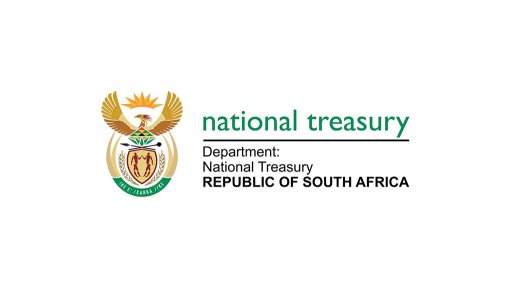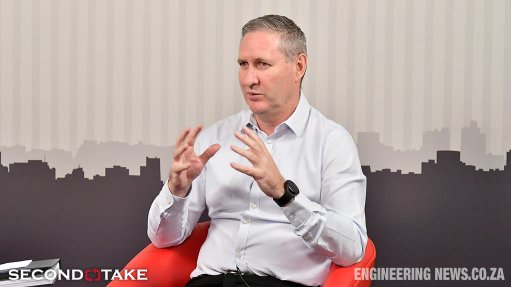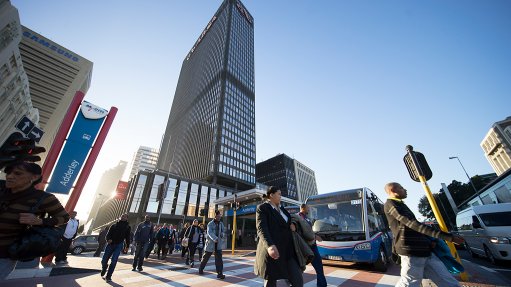At R175bn, govt's cumulative irregular spend now tops its annual budget for police and defence
The cumulative irregular expenditure incurred by government departments and public entities - up to and including the current financial year - now stands at R174.88-billion.
The "closing balance" figure at the end of the 2017/18 financial year was R139.81-billion, and was R115.51-billion in 2016/17.
This is according to the Auditor-General of South Africa's report on the audit outcomes of national and provincial government for 2018/19. The AG did not say which years are included in the calculation for the cumulative irregular expenditure figure.
The findings show that for the 2018/19 year alone, reported irregular expenditure was R61.35-billion.
Auditor General Kimi Makwetu presented the findings before Parliament's Standing Committee on Public Accounts (Scopa) on Wednesday. For perspective, government's entire annual budget for policing and the defence force, together, is R154-billion.
The AG in 2018/19 audited a total of 432 government departments and public entities. Just 23% received clean audits, while 11% still had outstanding audits as of September 2, 2019.
The majority of outstanding audits came from public entities, seven of which are state-owned enterprises. The remainder of the outstanding audits are from government departments.
Ballooning figures
Irregular expenditure for 2018/19 increased from the previous year's R50.97-billion to R61.35-billion. However, this figure may be understated, as not all irregular expenditure had been disclosed for the year, given that some audits are outstanding.
Notably, the number of auditees incurring irregular expenditure slightly decreased from 296 to 289, according to the AG's presentation to the committee.
The irregular expenditure mainly relates to non-compliance with supply chain management processes - a trend already observed in previous years, as well as payments made without following due process, Makwetu said.
The AG has recommended that all irregular expenditure be investigated further to determine if it was incurred due to incompetence or "malicious" motives.
Irregular expenditure is largely concentrated in KwaZulu-Natal, which accounted for R12.42-billion of the irregular expenditure in the past financial year. The province is followed by national government (R11.25-billion), and Gauteng (R7.13-billion).
In KwaZulu-Natal, the main culprits of irregular expenditure are its health and transport departments. Nationally, the department of water and sanitation is a driver of irregular expenditure. In Gauteng, meanwhile, the health department, as well as roads and transport, contributed the most.
Fruitless and wasteful expenditure
Fruitless and wasteful expenditure - or expenditure which could have been avoided - decreased to R1.42-billion in the 2018/19 financial year, down from the R2.57-billion reported in 2017/18.
However, the AG warned that this expenditure could also be understated, as some audits are still outstanding.
Makwetu described some of this expenditure as "low-hanging fruit", including interest on late payments, litigation claim and millions related to the cancellation of accommodation, vehicles and trips.
Unauthorised expenditure, meanwhile, or expenses which were not budgeted for, decreased from R2.13-billion in 2017/18 to R1.65-billion reported in 2018/19. Makwetu said this expenditure is incurred often due to a lack of planning, or a lack of rigour in keeping to the budget.
Financial health risks
The report shows that 34 auditees, excluding state-owned enterprises - were in a "vulnerable" financial position. This means they might not have the finances to continue their operations, according to the AG. About 36% of auditees have a deficit which means their expenses exceed revenue.
Departments are also facing litigation claims, which are not budgeted for. This means successful claims are often paid for with funds earmarked for service delivery, the AG stated in its presentation.
As for state-owned enterprises, some like the Post Office and the Petroleum Oil and Gas Corporation of South Africa are facing going concern challenges. During the period government guarantees ballooned to R446-billion, Makwetu said. SOEs are using these guarantees to secure loans.
"Guarantees or bailouts for SOEs would increase the budget deficit of the fiscus, government debt and borrowing costs, and result in downgrades from ratings agencies," the AG warned.
Comments
Announcements
What's On
Subscribe to improve your user experience...
Option 1 (equivalent of R125 a month):
Receive a weekly copy of Creamer Media's Engineering News & Mining Weekly magazine
(print copy for those in South Africa and e-magazine for those outside of South Africa)
Receive daily email newsletters
Access to full search results
Access archive of magazine back copies
Access to Projects in Progress
Access to ONE Research Report of your choice in PDF format
Option 2 (equivalent of R375 a month):
All benefits from Option 1
PLUS
Access to Creamer Media's Research Channel Africa for ALL Research Reports, in PDF format, on various industrial and mining sectors
including Electricity; Water; Energy Transition; Hydrogen; Roads, Rail and Ports; Coal; Gold; Platinum; Battery Metals; etc.
Already a subscriber?
Forgotten your password?
Receive weekly copy of Creamer Media's Engineering News & Mining Weekly magazine (print copy for those in South Africa and e-magazine for those outside of South Africa)
➕
Recieve daily email newsletters
➕
Access to full search results
➕
Access archive of magazine back copies
➕
Access to Projects in Progress
➕
Access to ONE Research Report of your choice in PDF format
RESEARCH CHANNEL AFRICA
R4500 (equivalent of R375 a month)
SUBSCRIBEAll benefits from Option 1
➕
Access to Creamer Media's Research Channel Africa for ALL Research Reports on various industrial and mining sectors, in PDF format, including on:
Electricity
➕
Water
➕
Energy Transition
➕
Hydrogen
➕
Roads, Rail and Ports
➕
Coal
➕
Gold
➕
Platinum
➕
Battery Metals
➕
etc.
Receive all benefits from Option 1 or Option 2 delivered to numerous people at your company
➕
Multiple User names and Passwords for simultaneous log-ins
➕
Intranet integration access to all in your organisation





















